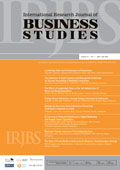Article Metrics |
|
|
The Institutional Arrangements In The Palm Oil Sector: Effort To Spur Economic Growth In Rural Areas
Abstract
Palm Oil is a fantastic plant for the people of Riau Province. It can be seen from the rapid development of plantations, in 2001 palm oil plantations covered an area of 1,119,798 ha and in 2010 it increased to 1,925,341 ha with a growth of 36.02%. Palm oil plantation activities brought economic impact on society, both for the people who are directly involved with the activities of plantations and for their surrounding community. To anticipate the rapid development, a model avoiding inequality of income among farmers needs to be designed, especially for self-supporting farmers in a partnership pattern. Institutional model aims to increase the welfare of rural farmers in the form of Palm Oil Based Agroestate (ABK). The concept of Palm oil Based Agroestate collaborates between farmers, cooperatives, and business enterprises. Through the ABK program, farmers will have an opportunity to buy/have shares of the Palm oil Factory (PKS). There are two main business activities of ABK model; first, business activitiet hat build palm oil plantations and factories of the derivative industry; if necessary the settlement of participaing farmers will be established by the developers; second, managing plantations and participating farmers-owned factories as well as market the products carried out by a business enterprise or a cooperative formed by the participant farmers.
DOI :https://doi.org/10.21632/irjbs.4.3.171-188
DOI :https://doi.org/10.21632/irjbs.4.3.171-188
Keywords:
Institutional economics, agroestate, palm oil
Full Text:
Copyright (c) 2015 INTERNATIONAL RESEARCH JOURNAL OF BUSINESS STUDIES
International Research Journal of Business Studies has been covered by the following services: | ||||||||||||||||||||||||
|



















